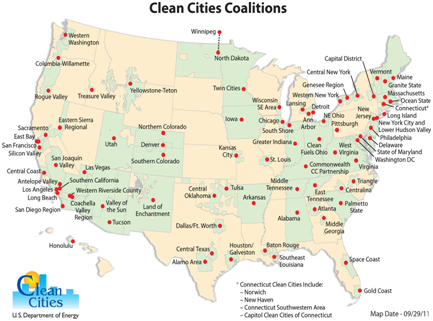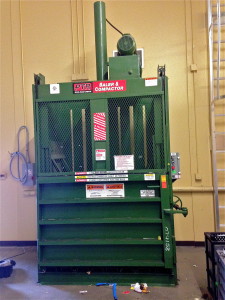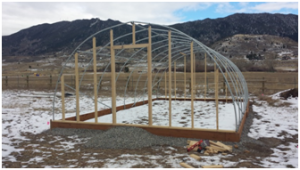Read about Amy’s thoughts on overcoming a limited budget by strengthening local networks;
“So, there’s no budget, right?” I ask my boss, knowing what the answer will be. This is a question she has patiently and positively responded to me, multiple times. It’s taking me a while to grasp the idea that I have a very limited budget for planning education and outreach events and workshops.
Most of my environmental work experience comes from my college community. While in school I worked on various committees to promote a more sustainable campus. As a Clean Energy Educator, I am organizing monthly workshops on sustainability topics to provide citizens with resources to make more sustainable decisions. In addition, I am in the process of implementing an Alternative Fuels in Transportation and Energy Efficiency curriculum in classrooms throughout Montana.
There is some overlap between the environmental education and the outreach work I did in school and the work I’m doing now. The goal is ultimately the same – communicate the importance and urgency of taking steps (or leaps) to mitigate our impact on the environment, without nagging and painting the picture as hopeless.
However, major differences do exist between the work I did in undergrad and the work I am doing now. What I’ve found to be so fundamentally different is resources. Non-profits are notorious for having low-operating budgets and relying on donations of stakeholders and sponsors. Yellowstone-Teton Clean Energy Coalition is no exception. Asking strangers or even professional acquaintances for support can feel awkward, for everyone involved, but it is so necessary to actualize your goals. It’s a skill that I’m working on.
I try to estimate the budget I had in college and can’t even give you a ballpark figure. That’s how out of touch I could be – nothing was out of range. It was a bottomless pit of funding. Although it would be nice to have that seemingly unending budget I had in college, I prefer the non-profit alternative. Because without that university provided pile of money, I’m learning to be more creative. I’m learning to more effectively communicate why I think my cause is so worthy to support. It forces me to clearly, concisely and convincingly describe why alternative fuels in transportation and energy efficiency is necessary for our health and well-being. There are reasons that might stimulate my interest in the matter that may fall on deaf ears for others. So I have to continually develop ways to communicate why my coalition’s work is essential. And that’s more valuable and important to me. This is a year of growth after all.
I was once told that you cannot have creativity without boundaries. Those limits and restrictions on what you can do, forces you to think more deeply to come up with a solution. And even though I don’t have much of a budget to work with, I have the support of 100 Clean Cities Coalitions across the country. And by reaching out to other like-minded organizations, we strengthen the network of local groups working on complementary initiatives and foster a cohesive sustainability movement. That’s some support and backing that I could never utilize through my budget in college.
 Amy Snelling graduated from the University of Delaware with a B.S in Environmental Science and a minor in environmental humanities. While in college she was the chair of the Delaware Environmental Institute’s Student Programs Committee and the Green Liasons, both groups worked to promote environmental awareness and sustainability issues to the campus community. Amy is serving at the Yellowstone Teton Clean Energy Coalition, where she will expand the organizations sustainability series and energy literacy curriculum.
Amy Snelling graduated from the University of Delaware with a B.S in Environmental Science and a minor in environmental humanities. While in college she was the chair of the Delaware Environmental Institute’s Student Programs Committee and the Green Liasons, both groups worked to promote environmental awareness and sustainability issues to the campus community. Amy is serving at the Yellowstone Teton Clean Energy Coalition, where she will expand the organizations sustainability series and energy literacy curriculum.









